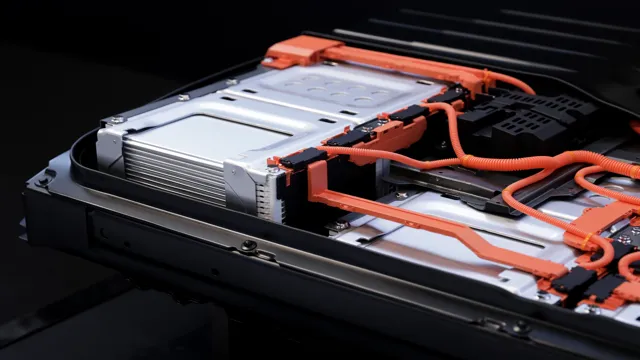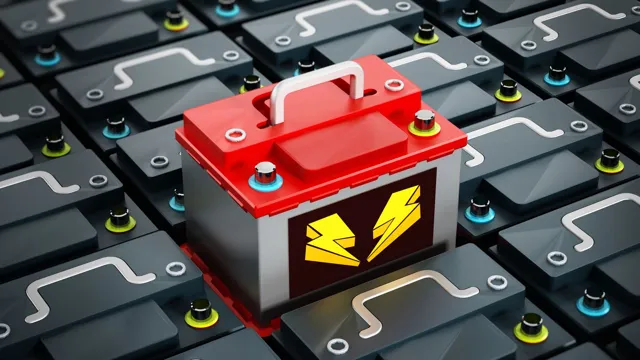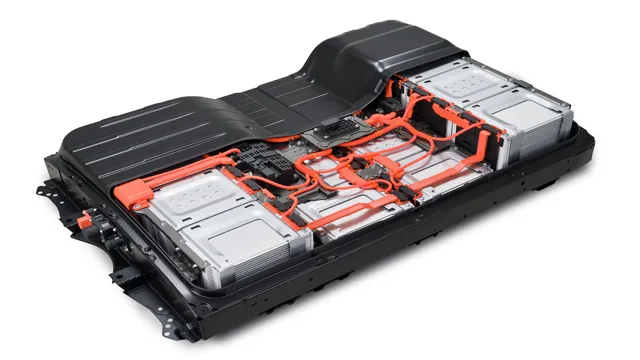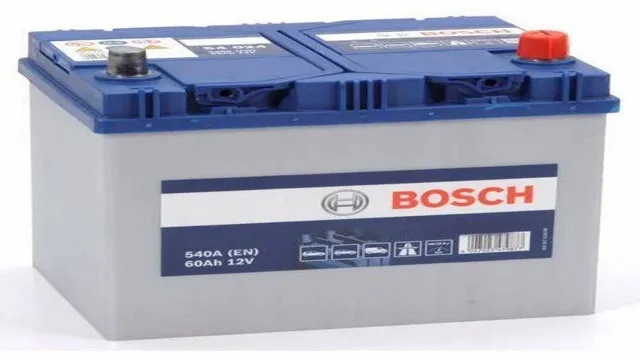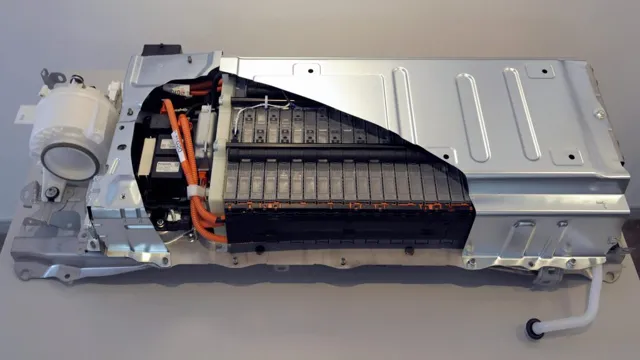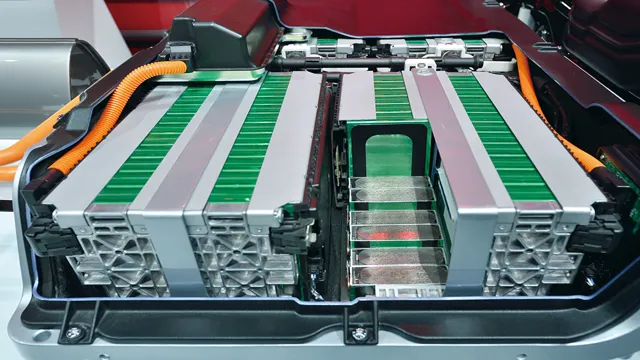Power Ahead with Latest Battery Technology: A Comprehensive Guide to Electric Car Batteries in India
Electric cars have been gaining popularity in India as people become more aware of their environmental impact. With this increasing demand, one of the main concerns among potential buyers is the battery life and where to find replacement options. Luckily, there are several options available for electric car batteries in India.
From lithium-ion to lead-acid batteries, each option has its pros and cons. Lithium-ion batteries are known for their higher cost but have a longer lifespan and are more energy-efficient. On the other hand, lead-acid batteries are cheaper but have a shorter lifespan and are less energy-efficient.
When it comes to finding replacement options, buyers can look to the original equipment manufacturer or aftermarket suppliers. It’s important to note that opting for third-party suppliers can come with risks, such as warranties and compatibility issues. Overall, the decision on which electric car battery to choose in India ultimately depends on personal preferences and needs.
It’s essential to do research and consider factors such as cost, lifespan, and energy efficiency. Regardless, with the variety of options available, electric car owners in India have a range of choices for their battery needs.
Lithium-ion Batteries
If you’re considering buying an electric car in India, it’s important to know the type of battery it comes with. Lithium-ion batteries are the most common batteries used in modern electric cars due to their high energy density, low maintenance, and long lifespan. These batteries are made from lithium, a lightweight metal that can store large amounts of energy.
They’re rechargeable, which means you can charge them up and use them again and again. Indian car manufacturers have been increasingly using lithium-ion batteries in their electric vehicles, as they are more cost-effective and reliable than other types of batteries. With government incentives and subsidies, owning an electric car with a lithium-ion battery has become more accessible and affordable in India.
So, if you’re looking for a reliable and cost-effective battery for your electric car in India, lithium-ion batteries are definitely worth considering.
Overview of Lithium-ion Technology
Lithium-ion batteries are quickly becoming the go-to power source for many modern devices, from smartphones to electric cars. This technology offers a host of benefits over traditional batteries, including a higher energy density, longer lifespan, and faster charging times. Unlike typical batteries that use a mixture of chemicals, lithium-ion batteries rely on a chemical reaction between the lithium ions and the materials used in the battery.
This process allows for a more efficient transfer of energy, resulting in a more powerful and longer-lasting battery. Additionally, advancements in lithium-ion technology have led to the development of safer and more environmentally friendly batteries. Overall, lithium-ion batteries are shaping the future of energy storage and providing us with the power needed to fuel our increasingly mobile and connected world.
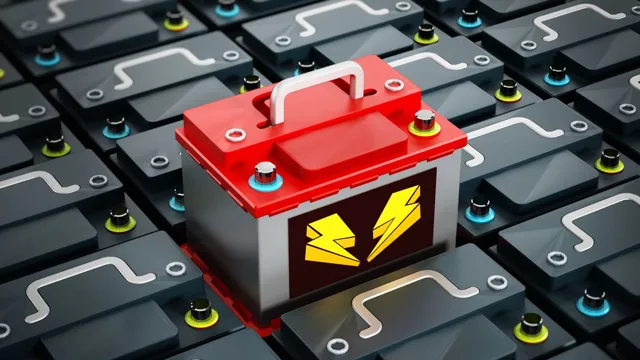
Benefits and Drawbacks of Lithium-ion Batteries
Lithium-ion batteries have become the standard power source for many electronic devices due to their high energy density, long lifespan, and rapid charge times. However, like any technology, lithium-ion batteries also come with some drawbacks. One of the biggest benefits of lithium-ion batteries is their high energy density, which means they can store a lot of energy in a small size.
This makes them ideal for portable devices like smartphones and laptops that need to be lightweight and compact. Another advantage is their long lifespan, which can last up to three years or more if used and maintained properly. Additionally, lithium-ion batteries have a rapid charge time, which means you can quickly recharge your device and get back to using it.
However, these batteries are not without their drawbacks. One major drawback is that they can be expensive, especially for larger devices like electric cars. Additionally, lithium-ion batteries can sometimes overheat and catch fire, which can be dangerous.
Overall, lithium-ion batteries are a reliable and efficient power source, but it’s important to use them responsibly and take precautions to avoid any potential safety risks.
Lead-Acid Batteries
When it comes to choosing a battery for an electric car in India, one of the most common types used is the lead-acid battery. These batteries are known for their affordability and durability, making them a popular choice for electric car owners. Lead-acid batteries use a chemical reaction to produce electrical energy, which is then stored in the battery and used to power the car.
However, it’s important to note that they do have some limitations. Lead-acid batteries can be heavier and larger than other types, and they also require regular maintenance to ensure proper function and longevity. Despite these drawbacks, lead-acid batteries remain a reliable option for those looking for a budget-friendly and efficient battery for their electric car in India.
Overview of Lead-Acid Technology
Lead-acid batteries have been around since the mid-1800s and are still commonly used in various applications today. They are rechargeable batteries that use lead as the primary material for the electrodes and sulfuric acid as the electrolyte. The lead-acid battery is popular because of its high power-to-weight ratio and its ability to supply a high surge of electrical energy.
This makes it ideal for use in cars, boats, and other vehicles that require a burst of power to start the engine. However, lead-acid batteries have a limited lifespan and can only be recharged a certain number of times before they become unusable. It’s important to dispose of them properly because they contain toxic lead and sulfuric acid.
Despite their drawbacks, lead-acid batteries remain a vital component in many industries because of their reliability and low cost.
Benefits and Drawbacks of Lead-Acid Batteries
Lead-acid batteries have been around for over 150 years and remain one of the most widely used types of batteries for a variety of applications. The primary advantage of lead-acid batteries is their low cost and high efficiency, making them an attractive option for use in vehicles, backup power systems, and renewable energy storage systems. Another benefit of lead-acid batteries is their durability, with a typical lifespan of 3-5 years, and the ability to be recharged and reused multiple times.
However, there are also drawbacks to consider. Lead-acid batteries are heavy, making them less ideal for portable applications, and they can release toxic gases when charged or discharged. Additionally, lead-acid batteries require regular maintenance, including adding distilled water to prevent dry-out and checking for corrosion or damage.
Despite these drawbacks, lead-acid batteries remain a popular choice for many applications due to their cost-effectiveness and ability to reliably and efficiently store and discharge energy.
Nickel-Metal Hydride Batteries
If you’re wondering about the best battery for an electric car in India, you may want to consider nickel-metal hydride batteries (NiMH). These batteries utilize a combination of nickel and rare earth metal hydrides to store energy and are commonly used in hybrid electric vehicles. While not as efficient as lithium-ion batteries, NiMH batteries are still a popular choice due to their affordability and reliability.
One of the main advantages of this battery type is its ability to withstand extreme temperatures, making it ideal for use in the heat of Indian summers. Additionally, NiMH batteries can be recycled, reducing environmental impact and increasing sustainability. While they may not be the most cutting-edge technology, nickel-metal hydride batteries are a solid, practical choice for powering electric vehicles in India.
Overview of Nickel-Metal Hydride Technology
Nickel-metal hydride batteries are a type of rechargeable battery that have been used in various applications since the early 1990s. These batteries use a hydrogen-absorbing alloy instead of the traditional cadmium or lead-acid materials used in older batteries. One significant advantage of Nickel-metal hydride batteries is that they have a higher energy density than other types of rechargeable batteries, which means that they can store more energy in the same size or weight.
They are also environmentally friendly compared to other battery technologies, which makes them ideal for use in hybrid electric vehicles (HEVs) and other applications that require clean energy. However, Nickel-metal hydride batteries have some downsides, such as self-discharge over time, which can reduce their overall capacity. Overall, these batteries are a good alternative to the traditional lead-acid batteries, and they have many advantages that make them a popular choice for many applications.
Benefits and Drawbacks of Nickel-Metal Hydride Batteries
Nickel-Metal Hydride Batteries have been on the market for several decades as an alternative to lead-acid batteries. The main benefits of Nickel-Metal Hydride Batteries include the fact that they are more environmentally friendly, rechargeable, and have a higher energy density than lead-acid batteries. However, there are also some drawbacks to using Nickel-Metal Hydride Batteries.
One of the main disadvantages is that they have a higher self-discharge rate than other rechargeable batteries, which means that they can lose their charge over time. Additionally, Nickel-Metal Hydride Batteries have a shorter lifespan than other types of rechargeable batteries, which can make them less cost-effective in the long run. Overall, Nickel-Metal Hydride Batteries are a good option for those looking for an alternative to lead-acid batteries, but they may not be the best choice for all situations.
Which Battery Is Right for Your Electric Car?
Choosing the right battery for your electric car can be a daunting task. In India, the most common types of batteries used in electric vehicles are Lithium-ion, Lead-acid, and Nickel-metal hydride. Lithium-ion batteries are the most efficient and have the longest lifespan, but they also tend to be more expensive.
Lead-acid batteries are cheaper, but they have a shorter lifespan and are heavier. Nickel-metal hydride batteries are somewhere in between the two in terms of efficiency and cost. When choosing a battery for your electric car, it is important to consider factors such as range, cost, and charging time.
Ultimately, the decision will come down to personal preference and budget. It’s important to research different battery options and consult with experts before making a final decision.
Conclusion
In conclusion, the future of electric cars in India is charged with excitement as the country ramps up its efforts to develop a reliable and sustainable battery solution. As the demand for cleaner, more efficient transportation continues to rise, it’s important that we invest in innovative technologies that can keep pace. Whether it’s through the use of lithium-ion, solid-state, or some other breakthrough material, one thing is clear: the Indian automotive industry is poised for an electrifying transformation, and we can’t wait to see what kind of sparks will fly.
“
FAQs
What is the current state of the battery for electric cars in India?
Battery technology for electric cars in India is rapidly advancing and becoming more widely available, with several domestic and international manufacturers offering options.
How long does it typically take to charge an electric car battery in India?
This can vary depending on the make and model of the electric vehicle and the type of charger being used, but in general, it can take anywhere from a few hours to overnight to fully charge an electric car battery.
What kind of government incentives are available for purchasing an electric car in India?
The Indian government offers several incentives for electric car buyers, including tax breaks, subsidies, and exemptions from certain fees and tolls.
Are there any downsides to using electric car batteries in India?
While electric cars are a great way to reduce emissions and lower environmental impact, there are some potential downsides to consider, such as limited range, longer charging times, and the need for a charging infrastructure to support widespread adoption.

